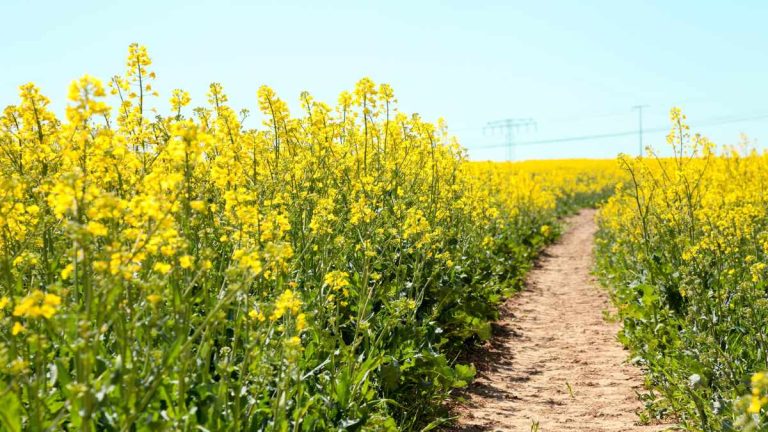Oilseed rape, once a staple of UK arable farming, has seen a significant decline in plantings, potentially reaching its lowest levels in 40 years. Chris Guest, managing director of plant breeding company NPZ UK, is urging farmers to reconsider the crop’s potential, highlighting its crucial role in farming profitability and national food security.
Starting off, Mr Guest explains that oilseed rape can be one of the highest gross margin break crops for UK growers, comparing favourably to other arable crops in terms of profitability. “Alongside its excellent rotational and environmental benefits, the financial rewards of oilseed rape should not be overlooked,” Guest remarked. “However, the crop has been unfairly scrutinised, with negative reports overshadowing its many positives.”
The current perception surrounding oilseed rape tends to focus on its challenges, such as pest pressure and weather susceptibility. Nevertheless, Mr Guest believes that the narrative is unbalanced, stating: “While there are instances of poorer yields, as happens with all crops, there are plenty of success stories and average results to offset the challenges. The key is to focus on the improvements available.”
Oilseed rape plays a vital role in the UK’s food security, serving multiple purposes in both food and industrial products. “The oil extracted from rapeseed is a common household item, found on supermarket shelves across the country,” Guest explained. “The by-product, rape meal, is essential in animal feed production, making it crucial for livestock farming.”
However, the UK has shifted from being an exporter to an importer of rapeseed, which raises concerns for both the economy and the nation’s food supply. “This dependence on imported rapeseed undermines our food security and puts us at the mercy of international markets,” Mr Guest added. “Restoring the cultivation of oilseed rape within the UK would boost domestic production and alleviate these concerns.”
Acknowledging that oilseed rape has become a higher-risk crop due to factors such as flea beetle infestations, Guest emphasised that plant breeders are working hard to develop more resilient varieties. “At NPZ UK, our focus is on breeding oilseed rape varieties that not only offer improved yields but also possess superior disease resistance and other key agronomic benefits,” he said.
Guest noted that one often overlooked aspect of oilseed rape breeding is late-season stem disease resistance. “For example, the RlmS gene in our varieties provides robust phoma resistance, which can reduce yield losses by up to 30% compared to certain market-leading varieties,” he explained. While traits like pod shatter resistance are important, Guest argues that stem health and disease resistance should be prioritised in many seasons.
Sowing practices also play a critical role in the success of the crop. Many farmers are sowing oilseed rape earlier in the season in an effort to outmanoeuvre pests like flea beetles. However, research conducted with Dr Ute Kropf of the University of Applied Sciences in Kiel suggests that early-sown crops might limit their yield potential due to excessive growth before winter.
“We’ve been experimenting with later sowing dates, and the results are promising,” Guest commented. “Crops sown in early and late September have demonstrated significant yield potential, and this could be a game-changer for farmers concerned about early pest pressure.”
By focusing on better management techniques and improved crop varieties, the revival of oilseed rape in the UK could significantly benefit both farmers and the wider agricultural landscape. With continued innovation and commitment, oilseed rape can once again thrive as a profitable and essential crop for the UK.

